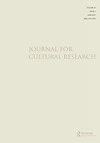“现在我成了死神,世界的毁灭者”:科学、变态、精神分析
IF 0.6
Q1 CULTURAL STUDIES
引用次数: 1
摘要
摘要本文从拉康精神分析的角度对当代“信任科学”的必要性进行了批判性的考察。它首先将当代科学研究置于20世纪“军工复合体”(D.艾森豪威尔)的历史背景下,在这个背景下,科学技术与军事共生。然后,它考察了推动军工复合体的心理结构,在军工复合体中,科学(反常地)将自己用于军事目的。曼哈顿计划的首席研究员J·罗伯特·奥本海默在两份声明中详细阐述了这一结构。在这两种说法中,奥本海默用“善良”和“对人类具有内在价值”来描述这一独特的发明,然后在他著名的《薄伽梵歌》引文中,这与“死亡”和彻底毁灭联系在一起。然后,文章提出,支撑这一主张的心理结构与康德的恶魔邪恶概念相对应,并在“官僚科学”的概念下进一步对结构进行概念化。文章最后展示了这种科学的自我工具化与通常暗示的死亡驱动的精神分析概念并不一致,而是与拉康定义的“享受的必要性”的超我相对应。本文章由计算机程序翻译,如有差异,请以英文原文为准。
‘Now I am become death, destroyer of worlds’: science, perversion, psychoanalysis
ABSTRACT This article offers a critical examination of the contemporary imperative to ‘trust science’ from the point of view of Lacanian psychoanalysis. It begins by putting contemporary scientific research in the twentieth-century historical context of the ‘military-industrial complex’ (D. Eisenhower) in which science and technology become symbiotically connected to the military. It then examines the psychic structure driving the military-industrial complex in which science (perversely) instrumentalises itself for military purposes. This structure is crystalized in two statements of J. Robert Oppenheimer, the principal investigator of the Manhattan Project. In these two statements, Oppenheimer describes this singular invention in terms of being ‘good’ and having ‘intrinsic value to humanity’, which is then bound to an identification with ‘death’ and total destruction in his famous citation of the Bhagavad-Gita. The article then proposes that the psychic structure underpinning this claim corresponds to the Kantian notion of diabolic evil, and then goes on to further conceptualise structure under the concept of ‘bureaucratic science’. The article concludes by showing how such a self-instrumentalization of science does not correspond to the psychoanalytic concept of the death drive, as is usually implied, but rather to the superego defined by Lacan as the ‘imperative to enjoy’.
求助全文
通过发布文献求助,成功后即可免费获取论文全文。
去求助
来源期刊

Journal for Cultural Research
CULTURAL STUDIES-
CiteScore
1.40
自引率
0.00%
发文量
23
期刊介绍:
JouJournal for Cultural Research is an international journal, based in Lancaster University"s Institute for Cultural Research. It is interested in essays concerned with the conjuncture between culture and the many domains and practices in relation to which it is usually defined, including, for example, media, politics, technology, economics, society, art and the sacred. Culture is no longer, if it ever was, singular. It denotes a shifting multiplicity of signifying practices and value systems that provide a potentially infinite resource of academic critique, investigation and ethnographic or market research into cultural difference, cultural autonomy, cultural emancipation and the cultural aspects of power.
 求助内容:
求助内容: 应助结果提醒方式:
应助结果提醒方式:


